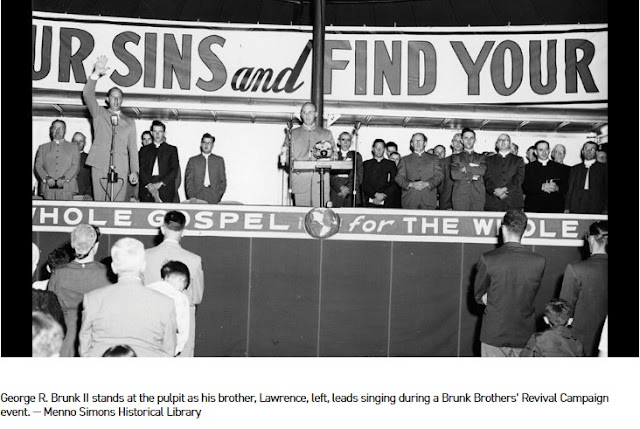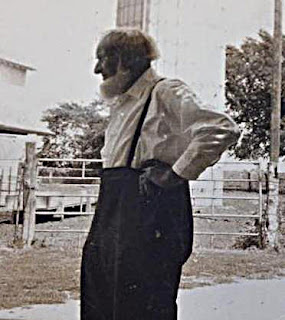Today I’m asking some simple questions about what led to the slippery slope of marijuana being recently legalized in Ohio. And did Christians unwittingly take part in the slippery slope?
When I first became a Christian I was pretty vocal in my assertions about things. For example, in the late 1970s, I went to a local Berlin, Ohio gas station owned and run by an outspoken Christian man. I asked him, “Why do you as an outspoken Christian man sell cigarettes at your gas station? His response was, “Because if I don’t sell them, someone else will.”
In recent years the same thing happened. I became friends with a devout Christian man who has an uncanny knowledge of the Bible. He’s been retired for many years but is very financially secure. I learned that in his younger years, he owned and ran a convenience store. He also admitted that as a Christian he sold cigarettes in his store. His response was very much the same as the gas station owner many years prior. “Well Arlen, if I didn’t sell them, someone else would.”
In my early Christian years, several fellow Berlin area Mennonite church members within a year called me. Being a lonely single man, I thought that perhaps they wanted to be my friend. The conversation went something like this:
- “Arlen, how are you doing?”
- I said, “I’m doing well.”
- “They said, “That’s good. I want to let you know that I recently came upon a great business opportunity, and I thought you might be interested in getting in on the ground floor.”
- I asked, “What’s the opportunity?”
- The standard vague reply followed, “Well, I don’t want to get into the details right now, but could I meet with you to discuss it further?”
- I didn’t understand their hesitation to spill the beans about the details of a “great business opportunity”.
- I said, “I need to know upfront what the opportunity is before I commit to a meeting.”
- They became a bit defensive and started dropping names of other involved church members. One even went so far as to implicate the pastor and his wife. He said that they were the main leaders in the opportunity.
- I asked again, “What is the opportunity?”
- They finally revealed that it was “Amway”.
Amway held major conferences in which they proclaimed their distinct Christian beliefs that led to their success, and they gave great motivational speeches to the attendees to encourage them they could achieve the same success. The problem was that to achieve this success, people had to engage other people to sell under them to get a cut of their sales.
Think of a big family and the grandfather getting a cut of every sale of their son, grandson, great-grandson, and so on. The grandfather would eventually get rich on the backs of his descendants. The pastor and his wife were in essence the “grandparents” of our little Berlin area Amway opportunity. And I’m sure they also had “grandparents”.
Here’s the problem. I alluded to the fact that I was a lonely single man who wanted friends. From then on in that Mennonite church, I never knew if anyone wanted to get close to me because they liked me—or if they wanted me to work under them in Amway. It was very confusing.
You might ask me, “Arlen, what in the world does Amway and selling cigarettes have to do with the legalization of marijuana?” I’m going around the barn to set up how I think Christians were, and are sucked into the web of deceit leading to the legalization of marijuana. Below are a few circumstances that I have personally encountered, but I think there are many more:
- Multi-Level Marketing Schemes of Various Types, including Amway: Many Christians were and are involved in multi-level marketing schemes requiring recruitment of people under them to make money, with most recruits making very little money. On the other hand, the higher-ups, “grandparents” if you will, make great amounts of money.
- Selling of Homeopathic Waters of Various Types: I saw online that there are over 60 water multi-level marketing schemes in America in the recent past that tout healing. I had a Christian man several years ago start the same “Amway-type” approach with me after a Christian conference. He only gave vague references to a type of water that had healing powers. I think his ultimate goal was to get me to buy in under him. The problem was that this man had significant health problems himself that one would have thought the water would have healed him by now.
- Selling of Homeopathic Essential Oils: Several years ago my wife with some fairly impactful health issues got advice from various people to take specific essential oils. If she did so, she would see vast improvements. Of course, they would be willing to sell them to her. Later, I talked to one man who sheepishly said that he invested a couple thousand dollars in essential oils, and sold only a few. Now they sit at his house unsold, and he and his family only use them from time to time. The person who sold the essential oils and the promise of financial security to this man made out handsomely.
- Selling of Homeopathic CBD Oils: Yesterday I went to a local bulk food store run by a Christian family to ask about CBD oils that are being sold in many stores, including stores run by Christian people. It’s been on my mind for a couple of months, and I wanted to see what they had to say. I had a couple of bad marijuana trips (I think one was laced) before I was a Christian. Now I’m very leery of the “homeopathic” label garnered by CBD oils that are derived from marijuana. The co-owner of the store assured me that there wasn’t any THC in the oils that cause the high feeling of marijuana usage. She even said that dogs and their aching joints can benefit from CBD dog chews and drops of oil. I found out that a two-ounce bottle of CBD oil costs up to $60. Think of a small two-ounce bottle of vanilla extract in your cupboard, and consider that people are paying up to $60 for the same amount of CBD oil. Somebody is making big money here. She said proudly that her son researched the products and that they are of the highest quality. She said they get the oils from “Yoder Naturals” in South Carolina. I joked with her that they had to be good if they were from a family of Yoders.
- Homeopathic Benefits of Medical Marijuana: Everyone knows that marijuana, including medical marijuana, is derived from a plant. Plant-based remedies are touted by many, including Christians, as “natural”. So, therefore they are better than remedies made in a laboratory. Medical marijuana became legal in Ohio in 2016 if prescribed by a doctor to treat various specific conditions.
- Benefits and Less Harmful Side-effects of Marijuana Than Alcohol Usage: A young Christian man I know works for a marketing firm that promotes many things, and one of them is cannabis or recreational marijuana. Another is psychedelics (think of LSD). I heard him on talk shows in the cannabis world promoting these products. His premise is that they are very “natural”, and less impactful than alcohol usage, and that research is proving that they have, or may have, great healing properties.
- The Final Step of the slippery slope was the Legalization of Marijuana in Ohio in November.
So, here’s what I think is the bottom line. We as Christians have let our guard down for many years. And, I honestly believe that the legalization of marijuana is God’s reckoning as a result.
Let me know what you think.

.jpg)



.jpg)
.jpg)

.jpg)





